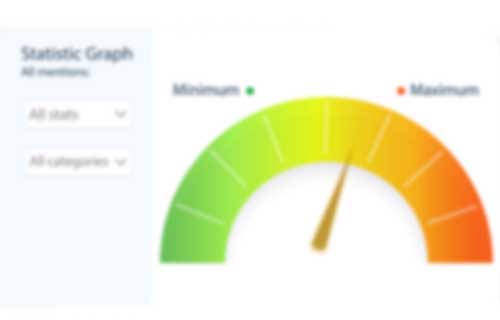The Beta Carotene Market is expected to register a CAGR of 5% from 2025 to 2031, with a market size expanding from US$ XX million in 2024 to US$ XX Million by 2031.
The report presents analysis based on form (beadlet, powder, and others). The report is segmented by source (natural and synthetic). The report is segmented by application (food and beverages, pharmaceuticals and nutraceuticals, animal nutrition, and personal care). The global analysis is further broken-down at regional level and major countries. The market size and forecast at global, regional, and country levels for all the key market segments are covered under the scope. The report offers the value in USD for the above analysis and segments. The report provides key statistics on the market status of the key market players and offers market trends and opportunities.
Purpose of the ReportThe report Beta Carotene Market by The Insight Partners aims to describe the present landscape and future growth, top driving factors, challenges, and opportunities. This will provide insights to various business stakeholders, such as:
- Technology Providers/Manufacturers: To understand the evolving market dynamics and know the potential growth opportunities, enabling them to make informed strategic decisions.
- Investors: To conduct a comprehensive trend analysis regarding the market growth rate, market financial projections, and opportunities that exist across the value chain.
- Regulatory bodies: To regulate policies and police activities in the market with the aim of minimizing abuse, preserving investor trust and confidence, and upholding the integrity and stability of the market.
Beta Carotene Market Segmentation
Form- Beadlet
- Powder
- Natural and Synthetic
- Food and Beverages
- Pharmaceuticals and Nutraceuticals
- Animal Nutrition
- Personal Care
- North America
- Europe
- Asia-Pacific
- South and Central America
- Middle East and Africa
Strategic Insights
Beta Carotene Market Growth Drivers- Surging Demand for Natural Food Colorants Driving Beta-Carotene Market: The surging interest in natural food colorants has been a substantial factor in the increased expansion of the market for beta-carotene. Consumers are more aware of their health and want food products with no synthetic or man-made additives in their composition. Thus, the demand for natural colorants has increased significantly. Beta-carotene became popular because it is a naturally occurring pigment from sources such as carrots and algae, provides some health benefits, and has a desirable orange-red color for commercial food products. Manufacturers targeting food industry products have procured large quantities of food-grade beta-carotene, and regional shortages have occurred. Health-conscious consumers have also emerged as a significant driver for beta carotene as demand for clean-label products rises.
- Regulatory Pressure Boosting Beta-Carotene Adoption in Food Products: In addition, there is pressure from regulators on artificial food colorants to migrate to natural colorants. An increasing number of governments worldwide have tightened synthetic dyes regulations. Such rule changes are driving food manufacturers to explore beta-carotene and other natural alternatives. A safer product generally aligns with what consumers already process in their minds as safe, thereby driving the clean-label market higher.
- Growth of Plant-Based Diets Fueling Beta-Carotene Usage: Plant-based diets are also leading to increased usage of beta-carotene. More consumers are transitioning to a vegan and vegetarian diet nationally and globally, and there is a need for naturally occurring colorants that meet those dietary requests. Not only is beta-carotene a great colorant within a vegan or vegetarian dietary pattern, it also adds nutritional value, which enhances value to consumers searching for health and wellness products.
- Shift from Synthetic to Natural Beta-Carotene Driven by Health & Environmental Awareness: The beta-carotene market is experiencing a significant change on account of the transition from synthetic to natural sources of beta-carotene. This is the result of rising consumer awareness of health and environmental issues, with natural ingredients preferred as opposed to synthetic ingredients. Therefore, there is a need for manufacturers to look into organic and ecological sources of beta-carotene.
- Regulatory Pressures Encouraging the Use of Organic Beta-Carotene: Regulatory pressures also add up to this trend. Manufacturers are facing stricter rules about synthetic additives; as a result, producers of food and beverages have to use organic beta-carotene and other natural additives. Such a transition goes a long way in easing health regulations and compliance and also creates a favorable brand image for health-conscious buyers who detest ramps or any other health aids that are concealed.
- Wellness Movement Boosting Demand for Organic Beta-Carotene in Multiple Sectors: The increasing wellness movement also impacts the demand for organic beta-carotene. Consumers are simply demanding health-promoting products that include antioxidants and vitamins. Because of its nutritional importance and plant origin, organic beta carotene is right on this health quest trend, making it more accepted in more sectors such as food, cosmetics, and dietary supplements.
- Technological Advances in Extraction and Production Expanding Beta-Carotene Market: Opportunities in the beta-carotene market are expanding at a greater rate, thanks to the technological evolution in extraction and production practices. For instance, the application of supercritical fluid extraction and enzymatic methods has improved the efficacy and yield of deriving beta-carotene from natural products. These innovations lower the overall cost of production, thus making it cheaper for the manufacturers and increasing the market supply.
- Nanoencapsulation Techniques Enhancing Bioactivity and Shelf Stability of Beta-Carotene: In addition, there has been technological advancement, which facilitates better production and stabilization of beta-carotene. For instance, the nanoencapsulation technique is employed to provide better bioactivity of beta-carotene and increased shelf stability of products containing beta-carotene such as foods and dietary supplements. Therefore, such innovative solutions increase the quality of the products and also increase the scope of use in others.
- Biotechnological Approaches Driving Efficient and Ecologically Sustainable Beta-Carotene Production: In addition, there are also newer demands for biotechnology as it addresses biosynthetic issues related to the generation of non-conventional b-carotene-producing genetically modified organisms. Such a biotechnological approach is likely to be ecologically more economical and appropriate for mass cultivation. This utilization of technology assists in reaching the natural coloring agents' expectations of the consumers while offering a workable solution for pre-synthesized beta-carotene.
Market Report Scope
Key Selling Points
- Comprehensive Coverage: The report comprehensively covers the analysis of products, services, types, and end users of the Beta Carotene Market, providing a holistic landscape.
- Expert Analysis: The report is compiled based on the in-depth understanding of industry experts and analysts.
- Up-to-date Information: The report assures business relevance due to its coverage of recent information and data trends.
- Customization Options: This report can be customized to cater to specific client requirements and suit the business strategies aptly.
The research report on the Beta Carotene Market can, therefore, help spearhead the trail of decoding and understanding the industry scenario and growth prospects. Although there can be a few valid concerns, the overall benefits of this report tend to outweigh the disadvantages.
REGIONAL FRAMEWORK
Have a question?

Shejal
Shejal will walk you through a 15-minute call to present the report’s content and answer all queries if you have any.
 Speak to Analyst
Speak to Analyst
- Sample PDF showcases the content structure and the nature of the information with qualitative and quantitative analysis.
- Request discounts available for Start-Ups & Universities
- Sample PDF showcases the content structure and the nature of the information with qualitative and quantitative analysis.
- Request discounts available for Start-Ups & Universities

Report Coverage
Revenue forecast, Company Analysis, Industry landscape, Growth factors, and Trends

Segment Covered
Nature, and by End Use

Regional Scope
North America, Europe, Asia Pacific, Middle East & Africa, South & Central America

Country Scope
This text is related
to country scope.
Frequently Asked Questions
The shift towards natural and organic beta-carotene sources is expected to be the key market trends.
The growing demand for natural food colorants is driving the market growth.
BART Spzoo; BASF SE; Givaudan; BioExtract; Sensient Technologies Corporation; Kaesler Nutrition GmbH; Koninklijke DSM NV; Lycored Corp; Vita Actives Ltd; and Zhejiang NHU Co Ltd are some of the key players operating in the beta-carotene market
Based on source, the natural segment is expected to witness the fastest growth during the forecast period
Based on geography, Europe held the largest share of the beta-carotene market due to increasing awareness among consumers of the health benefits of beta-carotene.
The Beta Carotene Market is estimated to witness a CAGR of 5% from 2023 to 2031
The Insight Partners performs research in 4 major stages: Data Collection & Secondary Research, Primary Research, Data Analysis and Data Triangulation & Final Review.
- Data Collection and Secondary Research:
As a market research and consulting firm operating from a decade, we have published many reports and advised several clients across the globe. First step for any study will start with an assessment of currently available data and insights from existing reports. Further, historical and current market information is collected from Investor Presentations, Annual Reports, SEC Filings, etc., and other information related to company’s performance and market positioning are gathered from Paid Databases (Factiva, Hoovers, and Reuters) and various other publications available in public domain.
Several associations trade associates, technical forums, institutes, societies and organizations are accessed to gain technical as well as market related insights through their publications such as research papers, blogs and press releases related to the studies are referred to get cues about the market. Further, white papers, journals, magazines, and other news articles published in the last 3 years are scrutinized and analyzed to understand the current market trends.
- Primary Research:
The primarily interview analysis comprise of data obtained from industry participants interview and answers to survey questions gathered by in-house primary team.
For primary research, interviews are conducted with industry experts/CEOs/Marketing Managers/Sales Managers/VPs/Subject Matter Experts from both demand and supply side to get a 360-degree view of the market. The primary team conducts several interviews based on the complexity of the markets to understand the various market trends and dynamics which makes research more credible and precise.
A typical research interview fulfils the following functions:
- Provides first-hand information on the market size, market trends, growth trends, competitive landscape, and outlook
- Validates and strengthens in-house secondary research findings
- Develops the analysis team’s expertise and market understanding
Primary research involves email interactions and telephone interviews for each market, category, segment, and sub-segment across geographies. The participants who typically take part in such a process include, but are not limited to:
- Industry participants: VPs, business development managers, market intelligence managers and national sales managers
- Outside experts: Valuation experts, research analysts and key opinion leaders specializing in the electronics and semiconductor industry.
Below is the breakup of our primary respondents by company, designation, and region:

Once we receive the confirmation from primary research sources or primary respondents, we finalize the base year market estimation and forecast the data as per the macroeconomic and microeconomic factors assessed during data collection.
- Data Analysis:
Once data is validated through both secondary as well as primary respondents, we finalize the market estimations by hypothesis formulation and factor analysis at regional and country level.
- 3.1 Macro-Economic Factor Analysis:
We analyse macroeconomic indicators such the gross domestic product (GDP), increase in the demand for goods and services across industries, technological advancement, regional economic growth, governmental policies, the influence of COVID-19, PEST analysis, and other aspects. This analysis aids in setting benchmarks for various nations/regions and approximating market splits. Additionally, the general trend of the aforementioned components aid in determining the market's development possibilities.
- 3.2 Country Level Data:
Various factors that are especially aligned to the country are taken into account to determine the market size for a certain area and country, including the presence of vendors, such as headquarters and offices, the country's GDP, demand patterns, and industry growth. To comprehend the market dynamics for the nation, a number of growth variables, inhibitors, application areas, and current market trends are researched. The aforementioned elements aid in determining the country's overall market's growth potential.
- 3.3 Company Profile:
The “Table of Contents” is formulated by listing and analyzing more than 25 - 30 companies operating in the market ecosystem across geographies. However, we profile only 10 companies as a standard practice in our syndicate reports. These 10 companies comprise leading, emerging, and regional players. Nonetheless, our analysis is not restricted to the 10 listed companies, we also analyze other companies present in the market to develop a holistic view and understand the prevailing trends. The “Company Profiles” section in the report covers key facts, business description, products & services, financial information, SWOT analysis, and key developments. The financial information presented is extracted from the annual reports and official documents of the publicly listed companies. Upon collecting the information for the sections of respective companies, we verify them via various primary sources and then compile the data in respective company profiles. The company level information helps us in deriving the base number as well as in forecasting the market size.
- 3.4 Developing Base Number:
Aggregation of sales statistics (2020-2022) and macro-economic factor, and other secondary and primary research insights are utilized to arrive at base number and related market shares for 2022. The data gaps are identified in this step and relevant market data is analyzed, collected from paid primary interviews or databases. On finalizing the base year market size, forecasts are developed on the basis of macro-economic, industry and market growth factors and company level analysis.
- Data Triangulation and Final Review:
The market findings and base year market size calculations are validated from supply as well as demand side. Demand side validations are based on macro-economic factor analysis and benchmarks for respective regions and countries. In case of supply side validations, revenues of major companies are estimated (in case not available) based on industry benchmark, approximate number of employees, product portfolio, and primary interviews revenues are gathered. Further revenue from target product/service segment is assessed to avoid overshooting of market statistics. In case of heavy deviations between supply and demand side values, all thes steps are repeated to achieve synchronization.
We follow an iterative model, wherein we share our research findings with Subject Matter Experts (SME’s) and Key Opinion Leaders (KOLs) until consensus view of the market is not formulated – this model negates any drastic deviation in the opinions of experts. Only validated and universally acceptable research findings are quoted in our reports.
We have important check points that we use to validate our research findings – which we call – data triangulation, where we validate the information, we generate from secondary sources with primary interviews and then we re-validate with our internal data bases and Subject matter experts. This comprehensive model enables us to deliver high quality, reliable data in shortest possible time.
Trends and growth analysis reports related to Beta Carotene Market

May 2024
Re-Refined Paraffinic Base Oil Market
Size and Forecast (2021 - 2031), Global and Regional Share, Trend, and Growth Opportunity Analysis Report Coverage: By Process (Acid Treatment, Clay Treatment, Solvent Extraction, and Hydrotreating), Application (Engine Oil, Hydraulic Oil, Metalworking Fluid, Compressor Oil, Grease, Turbine Oil, and Others), End Use (Automotive, Construction, Mining and Metallurgy, Marine, Energy and Power, Oil and Gas, and Others), and Geography

May 2024
Cosmetic Polymer Ingredients Market
Size and Forecast (2021 - 2031), Global and Regional Share, Trend, and Growth Opportunity Analysis Report Coverage: By Type (Polyethylene Glycol, Acrylic Acid-Based, Vinyl Acetate, Silicone, Cellulose, Collagen, Pectin, Xanthan Gum, Chitosan, and Others), Category (Natural, Synthetic, and Semi-Synthetic), Function (Rheology Modifier, Stabilizers, Emulsifiers, Film Formers, Conditioning, and Others), Application (Skincare, Hair Care, Makeup, and Others), and Geography

May 2024
Plastic Pipes Market
Size and Forecast (2021 - 2031), Global and Regional Share, Trend, and Growth Opportunity Analysis Report Coverage: By Type [Corrugated (Single-Wall and Multi-Wall) and Smoothwall], Material Type (Polyvinyl Chloride, High-Density Polyethylene, Polypropylene, and Others), Application (Water Supply, Sewage and Drainage, Irrigation, Gas Distribution, and Others), End-Use Industry (Construction and Infrastructure, Water and Wastewater Management, Oil and Gas, and Others), and Geography

May 2024
Nonwovens for Energy Applications Market
Size and Forecast (2021 - 2031), Global and Regional Share, Trend, and Growth Opportunity Analysis Report Coverage: By Type (Carbon Fiber, Titanium Fiber, and Others), Application [Battery, Fuel Cell Gas Diffusion Layer (GDL), PTL, and Wind Energy], and Geography

May 2024
Antimicrobial Coating Market
Size and Forecast (2021 - 2031), Global and Regional Share, Trend, and Growth Opportunity Analysis Report Coverage: By Material (Silver, Copper, Titanium Dioxide, and Others), Application (Healthcare, HVAC, Mold Remediation, Building and Construction, Food and Beverages, and Others), and Geography

May 2024
Hot Melt Adhesives Market
Size and Forecast (2020–2030), Global and Regional Share, Trend, and Growth Opportunity Analysis Report Coverage: By Product Type (Glue Sticks, Glue Slugs, and Others), Type (Ethylene Vinyl Acetate, Polyolefins, Polyamides, Polyurethanes, Styrene Block Copolymers, and Others), Application (Packaging, Construction, Automotive, Furniture, Footwear, Electronics, and Others), and Geography

May 2024
Lubricants Market
Size and Forecast (2021 - 2031), Global and Regional Share, Trend, and Growth Opportunity Analysis Report Coverage: By Base Oil (Mineral Oil, Synthetic Oil, and Bio-based Oil), Type (Hydraulic Fluid, Engine Oil, Driveline Lubricants, Metalworking Fluids, Grease, Process Oils, Coolants, and Others), End-Use Industry [Automotive (Passenger Cars, Light Commercial Vehicles, Heavy Commercial Vehicles, and Others), Building and Construction, Power Generation, Mining and Metallurgy, Food Processing, Oil and Gas, Marine, Aviation, and Others], and Geography

May 2024
Cosmetic Preservatives Market
Size and Forecast (2021 - 2031), Global and Regional Share, Trend, and Growth Opportunity Analysis Report Coverage: By Source (Natural and Synthetic), Product Type (Parabens, Formaldehyde Releasers, Organic Acids, Quaternary Compounds, Phenol Derivatives, Alcohols, and Others), Application (Hair Care, Skin Care, Makeup Products, Toiletries, Perfumes and Deodorants, and Others), and Geography



 Get Free Sample For
Get Free Sample For